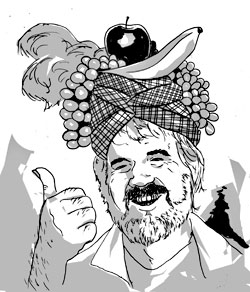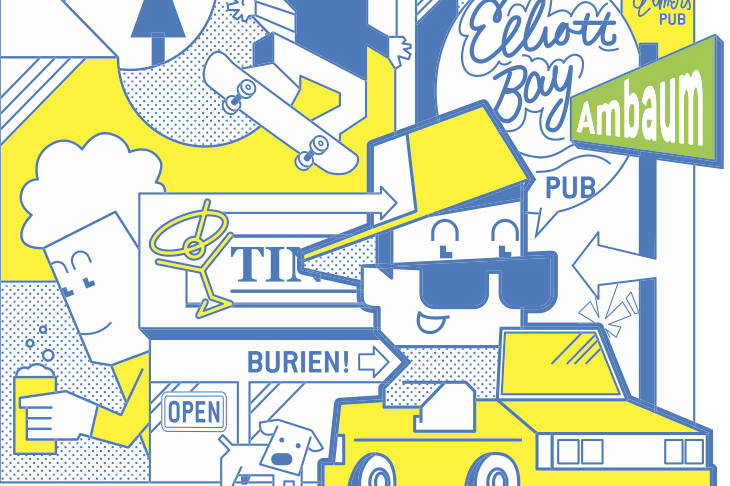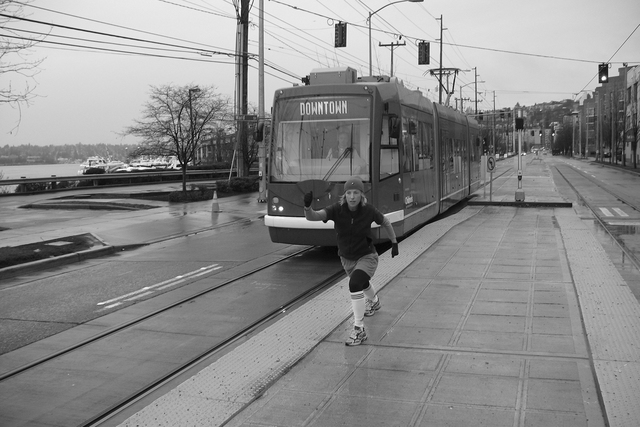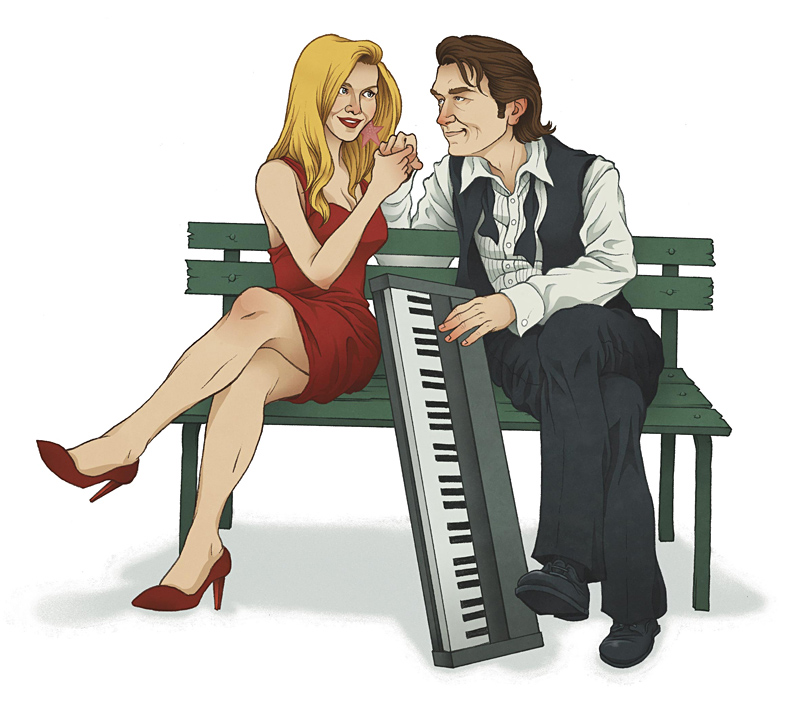Most guys who go by Kenny in their casual life don’t like to be called Kenny at work. Take deceased Enron crook Ken “Kenny Boy” Lay, Barbie’s boyfriend, or Seattle Weekly publisher Kenny Stocker. Only on the masthead does Stocker go by Ken. But to people who bump into him at the farmer’s market or gay bingo, he’s Kenny.
It stands to reason that most Kennys go by Ken professionally because Kenny is perceived as a little boy’s name and Ken a man’s name. The great country-western showman Kenny Rogers, however, has never played by these rules. Kenny’s always Kenny, and most undeniably a man: Kenny the singer (doo-wop, folk, and country, his career spanning half a century); Kenny the actor; Kenny the restaurateur; Kenny the philanthropist; Kenny the womanizer; Kenny the father; Kenny the Texan; Kenny the photographer (he’s published three books, which have included portraits of five U.S. presidents).
Often mocked as a liposuction-addicted, middlebrow schmaltzmeister, the truth about Rogers is that he is as much a pioneer in his genre—that which is commonly referred to as Young Country—as Dylan was to folk or Oingo Boingo was to new wave. The modern-day stars of this genre are Tim McGraw, Kenny Chesney, Faith Hill, Gretchen Wilson, Keith Urban, the Dixie Chicks, and Toby Keith. “Real” country music fans—the type who swear by Haggard and Cash—tend to cringe when McGraw teams up with Nelly or Chesney hooks up with Kid Rock (or when Big & Rich hook up with, well, one another). Little do they remember that Sir Kenny pioneered this very crossover course with his ’80s collaborations with Lionel Richie, Sheena Easton, and the Brothers Gibb.
Moreover, Kenny has his own record label, restaurant chain, clothing line, and made-for-TV franchise (The Gambler series), thus paving the way for such multimedia impresarios as J-Lo, Master P, Martha Stewart, and Oprah. Yet south of the Mason-Dixon Line may sit the savviest Kenny impersonator of them all: Toby Keith, who has his own “Toby Keith’s I Love This Bar & Grill” restaurant franchise and stars alongside Burt Reynolds and Kelly Preston in the feature film Broken Bridges.
With all his ventures and still-manic touring schedule (at age 68, no less), Kenny’s a tough colt to break. But one need only go back to the trailer from the 1982 film Six Pack for an apt summation of Kenny. Here, Rogers, in his big screen debut, is dubbed “a national treasure”—as though he has a condo in the Smithsonian or something.
The roles nominated for the Best Actor statuette in 1982 were all glamour parts, most notably Ben Kingsley’s Gandhi and Dustin Hoffman’s Tootsie. Yet Kenny’s criminally overlooked Brewster Baker was Six Pack‘s glue man—letting then-teen actors like Diane Lane and Anthony Michael Hall grab all the laughs. Kenny plays Brewster, a has-been Southern stock car driver/pussy magnet with a prepubescent pit crew of orphan siblings, in a manner not dissimilar to laid-back, real-life Kenny. The great Robert Downey Jr. once said that the easiest roles to play are ones that include foreign accents, costumes, impersonations, or tics (see: Gandhi, Tootsie and Rain Man). The toughest, says Downey: playing it straight.
Not that Kenny didn’t partake in some very un-Kennylike activities in Six Pack. Among the movie’s most surreal sequences is Brewster running to the top of the bleachers at a NASCAR track in Georgia, à la Rocky. He also does scores of sit-ups, wherein he is tempted by a box of KFC chicken on a motel bed that Diane Lane is sitting on. The real Kenny Rogers would never exercise—he’d just have his tummy tucked.
It’s hard to watch Six Pack and not be aware of its influence on America’s current No. 1 comedy, the Will Ferrell vehicle, Talladega Nights. Both feature seemingly authentic NASCAR races with real drivers. The difference is that the NASCAR of 1982 was largely a regional sport, whereas today’s NASCAR has gone national—even global. Could Kenny’s Six Pack have had something to do with such subsequent popularity? In all likelihood, yes.








